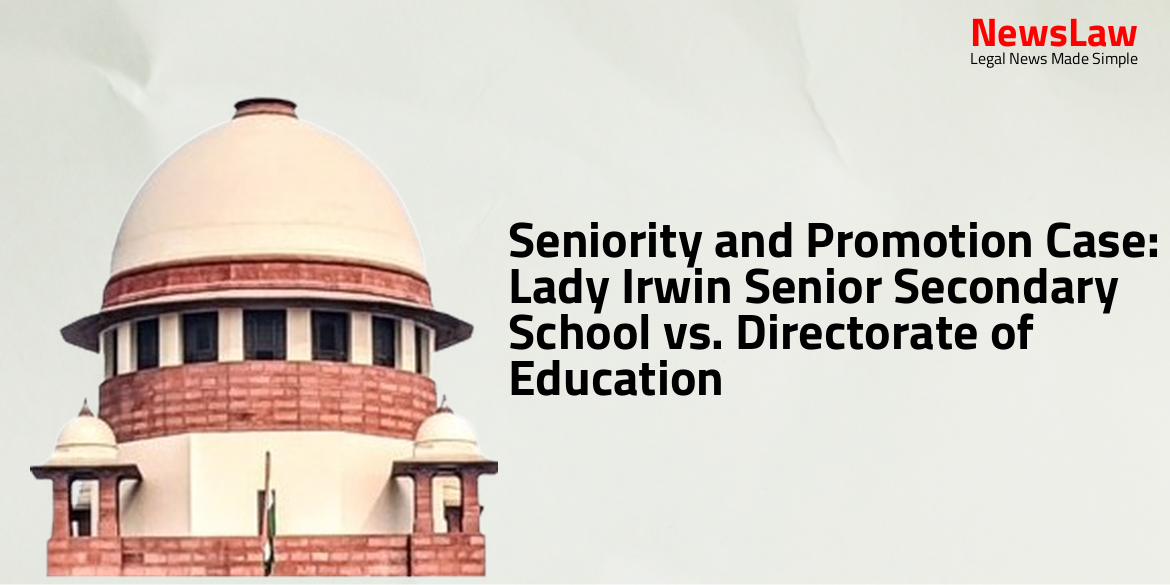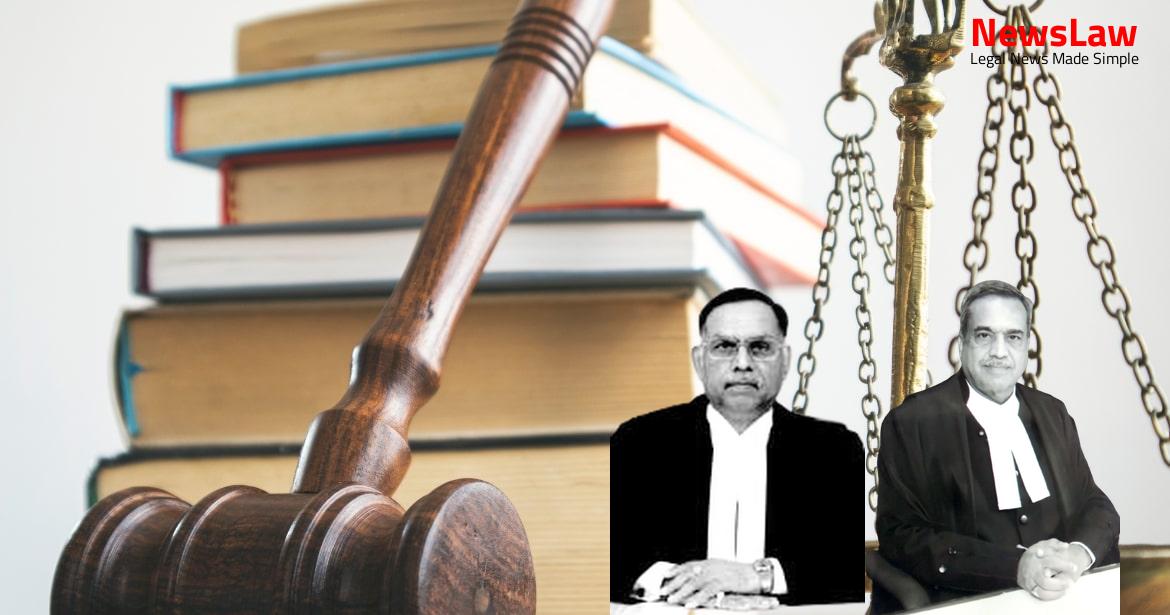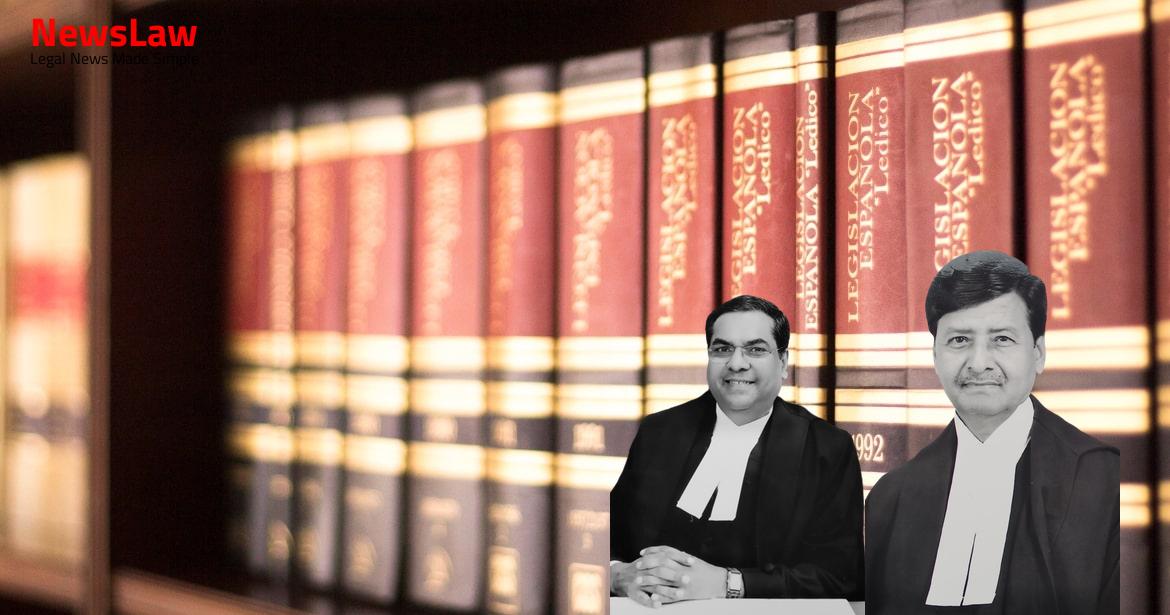In the case of UCO Bank v. Borrower, the High Court intervened in the dispute regarding the auction sale confirmation. The Borrower filed a writ petition challenging the sale despite the confirmed auction and sale certificate issued in favor of UCO Bank. Stay tuned to know more about the legal intricacies and the importance of exhausting statutory remedies in financial institution dues recovery cases.
Facts
- S.A. No 1476 of 2017 was dismissed as withdrawn on 21 September 2020 after the Borrower claimed a settlement out of court.
- On 2 February 2021, the Borrower’s M.A. was dismissed by DRT despite the Borrower’s filing for restoration of S.A. No 1476 of 2017.
- Respondent-Bank filed a Memo of Non-Settlement before DRT, denying any out-of-court settlement.
- Auction of scheduled properties was confirmed in favor of the appellant as the Borrower failed to deposit the required amount.
- The appellant subsequently paid the balance auction price, leading to the registration of Sale Certificate in their favor on 11 November 2020.
- DRT directed the respondent bank not to confirm the sale of scheduled properties if the Borrower deposited 30% of outstanding dues in two installments, which was eventually allowed through M.A. No 97 of 2020 in S.A. No 1476 of 2017.
- The High Court disposed of the writ petition
- The High Court set aside the order of DRT
- The High Court directed DRT to proceed with S.A. No 1476 of 2017 in accordance with law
Arguments
- Shri Bhushan, learned Senior Counsel, argues for the Borrower stating that the rule of self-restraint should not be applied in this case
- Shri Basant, Senior Counsel for the auction purchaser, contends that the High Court erred in entertaining the writ petition as the Borrower had a statutory appeal option under the SARFAESI Act
- Shri Basant further claims that the Borrower’s conduct disqualifies him from equitable relief as the writ petition was filed after full payment by the auction purchaser and issuance of a Sale Certificate
- UCO Bank’s counsel, Shri Partha Sil, supports the arguments for dismissal of the Borrower’s writ petition
- The learned Senior Counsel cited the judgment of the Court in State of U.P. v. Mohammad Nooh.
- It was argued that the High Court can entertain a petition under Article 226 of the Constitution in deserving cases to serve justice.
Analysis
- The High Court interfered with the writ petition based on the pending status and to prevent the borrower from being left without a remedy.
- The High Court failed to consider the subsequent developments, such as the confirmation of sale and registration of the sale certificate, which had reached an irreversible stage.
- In the absence of fraud or collusion, a confirmed auction sale cannot be set aside.
- The borrower failed to comply with the DRT’s order regarding depositing 30% of the outstanding dues, leading to dismissal of the securitization application.
- The High Court should not entertain a petition under Article 226 of the Constitution if an effective alternative remedy is available.
- The Court emphasized the importance of exhausting statutory remedies before seeking relief under Article 226, especially in matters involving recovery of dues.
- The High Court’s decision to set aside the DRT’s order and direct the revival of the securitization application was not justified.
- The High Court will not entertain a petition under Article 226 of the Constitution if an effective remedy is available to the aggrieved person, especially in matters involving recovery of taxes, fees, public money, or dues of financial institutions.
- Legislations enacted by Parliament and State Legislatures for recovery of public dues are self-sufficient and comprehensive in terms of procedures and the establishment of quasi-judicial bodies for grievance redressal.
- Exceptions to the rule of alternative remedy include instances where the statutory authority acts contrary to the enactment, fundamental principles of judicial procedure, uses repealed provisions, or violates natural justice principles.
- When a statutory forum exists for redressal of grievances, a writ petition under Article 226 should not be entertained, regardless of the availability of alternative remedies.
- The decision to entertain a petition under Article 226 despite alternative remedies depends on specific circumstances and exceptions recognized by the Court.
- Filing a counter-affidavit subsequently does not automatically justify declining to interfere with an interim order and seeking stay or modification of the order.
- The principles regarding alternative remedies and statutory forums for grievances redressal have been consistently reaffirmed by Court judgments.
- The High Court erred in entertaining and allowing the petition under Article 226 of the Constitution.
- High Courts have been entertained petitions under the DRT Act and the SARFAESI Act despite the availability of an effective alternative remedy.
- The case of Satyawati Tondon was cited to highlight the error of the High Courts in such matters.
Also Read: Ravinder Kumar vs. State – Legal Case Summary
Decision
- The High Courts continue to ignore statutory remedies under the DRT Act and the SARFAESI Act.
- High Courts should exercise discretion with caution and care in matters impacting banks’ right to recover dues.
- The appeal is allowed, the impugned order is quashed, and the writ petition is dismissed with costs.
- Pending applications, if any, are disposed of.
Case Title: PHR INVENT EDUCATIONAL SOCIETY Vs. UCO BANK (2024 INSC 297)
Case Number: C.A. No.-004845-004845 / 2024



